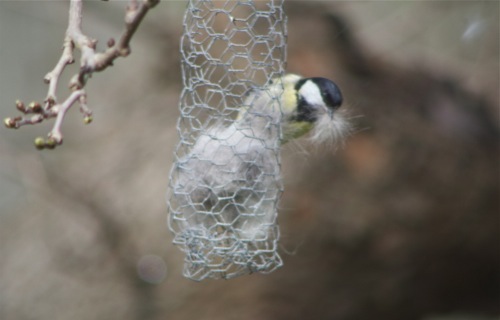1. A marvelous piece by Graves on L'Allegro (Verdict: "[with Shakespeare] the probing cold-chisel of criticism rings against the true rock of poetry. With L’Allegro, the plaster flakes away and the rubble tumbles out." Elsewhere, he speaks of "jolly old father Zeus himself, with a thunderbolt in his fist and a grog-blossom on his nose.") I have never liked these poems, which must have something to do why I enjoyed the Graves piece so much.
(It occurs to me that I haven't made full use of the newly-free TNR archive.)
2. Geoffrey Hill, in a lecture (nominally on war poetry) that Calista sent me, has much to say about Graves. The glib summary of the first 10-15 mins of the talk is that Seven Types, and its interest in verbal tensions and ambiguities, was ultimately the fruit of Graves's interest in psychology after WW1. (I'd known, of course, about Empson picking up the idea from the Graves/Riding analysis of "the expense of spirit(s)", but Hill pushes the chronology back a decade. I'm not sure this has more than bibliographical interest, though.) Later in the lecture, Hill quotes a short and really very good Graves poem that I hadn't prev. seen:
It is almost free of Graves's signature tweeness, except possibly for "tourbillions" which I can't make up my mind on; Hill, to his credit(?), treats the word as a serious literary choice rather than a symptom. (Obviously he is really drawn to the poem by that "ever-reluctant element"; recalcitrance of any kind seems always to have had an irresistible romance for him -- his first book begins with the line, "Against the burly air I strode" -- but this is all a story for another time.)On Portents If strange things happen where she is, So that men say that graves open And the dead walk, or that futurity Becomes a womb and the unborn are shed, Such portents are not to be wondered at, Being tourbillions in Time made By the strong pulling of her bladed mind Through that ever-reluctant element.
(As a note to self, if one ever finds the elementary excitation responsible for turbulence, "tourbillion" is a good name as it sounds international and has the "-on" ending.)
3. Speaking of Graves's style, Richard Wilbur on Graves, in the relevant PR interview:
Still, it can be useful and safe to read someone like Robert Graves who, as John Holmes said, is a great starter. You read Graves and he reminds you how delightful poetry can be at its best, and what a fine game it is—and it makes you want to write a poem. Not, however, a poem by Robert Graves, but one of your own.Symptomatic, perhaps, of his own not-unrelated tweeness, that he should say this? Elsewhere, Randall Jarrell remarks about some of the Auden poems in Nones, 'If you see such a poem, what can you say except, "Ah, Graves, poor dear Robert Graves! Inimitable, isn't he?" But how extraordinary that Auden [should have written it].' I must also confess that few things set my teeth on edge as effectively as hearing Graves read his poems.
4. And, before burying this topic, I should recall that marvelous bit in Goodbye to All That where he meets Thomas Hardy:
[Hardy] said that he regarded professional critics as parasites no less noxious than autograph hunters, and wished the world rid of them. He also wished that he had not listened to them when he was a young man; on their advice he had cut out dialect-words from his early poems, though they had no exact synonyms to fit the context. And still the critics were plaguing him. One of them recently complained of a poem of his where he had written `his shape smalled in the distance'. Now what in the world else could he have written? Hardy then laughed a little and said that once or twice recently he had looked up a word in the dictionary for fear of being again accused of coining, and had found it there right enough — only to read on and find that the sole authority quoted was himself in a half-forgotten novel! He talked of early literary influences, and said that he had none at all, for he did not come of literary stock. Then he corrected himself and said that a friend, a fellow-apprentice in the architect's office where he worked as a young man, used to lend him books. (His taste in literature was certainly most unexpected. Once when Lawrence had ventured to say something disparaging against Homer's Iliad, he protested: `Oh, but I admire the Iliad greatly. Why, it's in the Marmion class!' Lawrence could not at first believe that Hardy was not making a little joke.)

